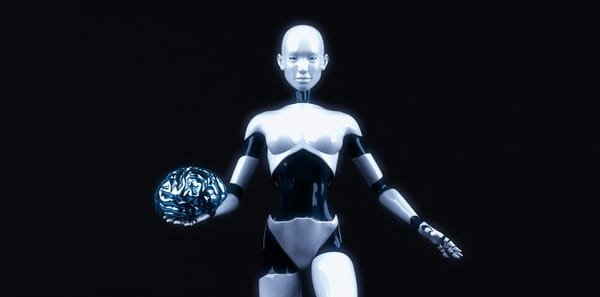Harnessing the Power of AI in HR
Given the pervasiveness of technology in today's world, it is hardly shocking that artificial intelligence (AI) has found its way into the human resources industry. HR is only one of the many industries that this potent technology is transforming. However, what precisely is AI's function in HR, and how is it applied in practical settings? More significantly, how might AI be incorporated into your own HR plan? Join us as we examine the revolutionary potential of AI in HR, revealing how it's about improving the human experience at work rather than just automating tasks.
Recognizing AI's Place in HR:
AI is fundamentally about building systems with the ability to learn, adapt, and maybe act on their own. AI is utilized in HR for a variety of purposes, including predictive analysis, task automation, and large-scale data management and analysis. AI is improving efficiency, objectivity, and employee satisfaction in a variety of contexts, including recruitment via AI-powered candidate monitoring systems and staff engagement through customized learning and development initiatives. Giving HR professionals the tools to carry out their jobs more effectively and impactfully is the goal, not replacing the personal touch.
How Is AI Affecting HR:
Here are some examples of how AI’s integration in HR is diverse and continuously-expanding:
· Recruitment and Onboarding: AI is automating the screening of resumes, setting up interviews, and even carrying out preliminary tests via chatbots that are driven by AI. This helps businesses create more diverse teams by eliminating unconscious prejudice and expediting the hiring process.
· Employee Experience: By analyzing employee feedback on a range of workplace factors, tools such as AI-driven survey platforms can give HR departments valuable insights about how to increase employee satisfaction and retain top talent.
· Learning & Development: By examining each worker's distinct skill set, career path, and learning preferences, AI is personalizing professional development. This results in customized training plans that support ongoing growth and development by attending to each person's requirements and goals.
· Predictive Analytics: By examining data patterns, AI is able to forecast trends like staff attrition. This makes it possible for HR departments to plan ahead for succession planning, retention tactics, and other areas.
How to Implement AI Into Your HR Plan:
Although integrating AI into your HR procedures can seem overwhelming, the process is methodical. Here are a few pointers:
· Start Small: You don't have to completely redesign your HR system right now. Start with a single procedure, such as hiring, then incorporate AI technologies bit by bit. Keep an eye on the effects and take note of any difficulties that arise.
· Train Your Team: Users who fully comprehend AI tools will find them to be most successful. Make an investment in educating your HR personnel on the usage of new AI technology, making sure they comprehend not only its operation but also its possible implications.
· Choose the Right Technology: There are a plethora of AI technologies at your disposal, but not all of them will be appropriate for your company. Before choosing, do a lot of research, ask for demos, and obtain opinions from other users.
· Track and Adjust: It's critical to keep an eye on the success of AI in your HR procedures, just like you would with any new plan. Make use of KPIs that are relevant to your objectives, such as raising employee happiness, decreasing attrition, or enhancing efficiency. Be ready to modify your plan of action as needed.
AI integration in HR is a reality today, bringing with it a plethora of advantages like enhanced productivity, superior decision-making, and more individualized employee experiences. Organizations that fully utilize AI will be better positioned going forward to draw in, hold on to, and nurture elite talent, which will ultimately propel commercial success in the digital era. Recall that the purpose of AI in HR is to enhance, not replace, human intelligence. Thus, the key is striking the correct balance while utilizing AI to strengthen the human component of HR.




